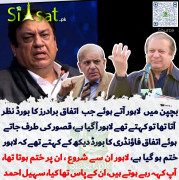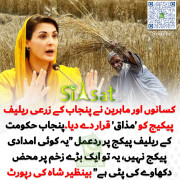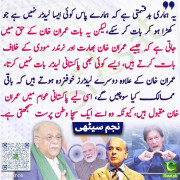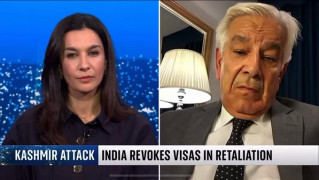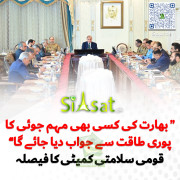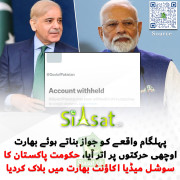Citizen X
(50k+ posts) بابائے فورم
The traditional claim is that it was the messengers job to bring and explain the Quran to us hence hadith are his explanations of the Quran so without the hadith we cannot understand the Quran. And when Allah says the prophet recited the book and hikmah, hikmah refers to his Like in verses 2:219 2:151 3:164 62:2
Now where is the word "explain" in these verses? Tafsir, Bayan, Fasar examples of Arabic words that mean explain. They are no where to be seen in these verses? So where does the notion or idea come from that the Prophet is the one who has to do the explaining?
Well then the traditionalists say that the Quran says وَيُعَلِّمُهُمُ (Yuällimu-humu)/Teach them the book. Well teach doesn't mean explain. Teach is making something known to you, a process to help someone learn something over a period of time, ( granted in the broader sense it may include explanations, demonstrations, examples and so on) and that's what the Prophet did, teach the Quran over time as it was revealed to him.
Explain means to make something clear and understandable, usually a one time process explaining helping someone understand a specific point. Like I can explain to someone how to use his mobile properly or its functions.
So there is clear difference between teaching and explaining, hence two different words.
Lets go to verses 75:17 to 19
﴾ 17 ﴿ "Indeed , upon Us is its collection and its reading .
﴾ 18 ﴿ "So when We read it , then follow its reading .
﴾ 19 ﴿ "Then indeed , upon Us is its explanation ."
So Allah is telling us, it is upon him to explain the Quran and not the Messenger. Then what is the Messenger's job?
5:67 O you Messenger , convey what has been revealed to you from your LORD, and if you do not, then you have not conveyed HIS message , but GOD will protect you from the people. Indeed, GOD does not guide the disbelieving people.
So the Messenger's job is to deliver the message and if he does not, than he has not done his job.
So then who will explain it? When it is being read, we have to follow the reading and if we do, Allah will provide you with its clarification as it is said in the previously quoted three verses.
So what about the Hadith? Did the prophet leave behind a book called the hadith of the prophet we are not aware of? Is there any evidence the Prophet saying this the hadith of the Prophet or this book is the hadith of the Prophet? What does hadith even mean? In the most simplest terms, sayings or words. So lets refer back to the Quran to what it says
52:34 - Then let them produce a statement/words/saying/hadith like it, if they should be truthful.
So Allah is challenging everybody, can you bring words/sayings/statements like the Quran? Obviously no one can.
So then which one the best hadith we should follow?
39:23 - ˹It is˺ Allah ˹Who˺ has sent down the best hadith/words/sayings/statements—a Book of perfect consistency and repeated lessons—which causes the skin of those who fear their Lord to tremble, then their skin and hearts soften at the mention of Allah. That is the guidance of Allah, through which He guides whoever He wills. But whoever Allah leaves to stray will be left with no guide.
So Allah has brought down the best and perfect hadith/words/sayings/statements which is his guidance.
So what choice are we left with, follow the best hadith of Allah of which there is no doubt or highly controversial, full of doubt, no way to even prove them alleged hadith of the prophet?
Its obvious to wise ones.
Then of course the traditionalists we come back with, what about all the times Allah says obey God and Obey the Prophet! First of Allah never says in the Quran obey the Prophet, its always The Messenger.
3.31 : Say : "If you should love GOD , then follow me , GOD will love you and forgive you your sins . For GOD is Forgiving and Merciful .”
Starts with SAY, meaning Allah is telling the messenger to perform his duty of "conveying the message" to us and tell us "If you should love GOD, follow me" We all love God, this is something we can all agree with as Muslims. And now the messenger has brought us his hadith/words, his Quran. So if we love God, we automatically have to follow his words, so automatically I also have to follow the messenger, so if I follow the messenger, what will God do to me? God will love me and forgive me my sins.
In the very next verse Allah says
3:32 Say : "Obey GOD and the Messenger ," but if they turn away , then indeed, GOD does not like the disbelievers.
So the answer is pretty obvious. If we love God we have to follow the Messenger and what is the duty of the messenger we have already seen that. To convey what has been revealed to him.
For all those people who want to turn follow the messenger as follow the prophets sunnah/hadith or the kitab and hikmah as the Quran and the sunnah/hadith. This verse is for them
10:82. And GOD will enforce the truth with HIS words , even if the criminals dislike it .
So let Allah speak for himself, do not try to insert or replace Allah's words with your own words and meaning.
If Allah wanted us to follow the sunnah of the Prophet there would be clear and unambiguous verses to do so. After all Allah says it is a clear and detailed book. And Allah would have made sure to protect these said hadith so there would be no doubt.
Now where is the word "explain" in these verses? Tafsir, Bayan, Fasar examples of Arabic words that mean explain. They are no where to be seen in these verses? So where does the notion or idea come from that the Prophet is the one who has to do the explaining?
Well then the traditionalists say that the Quran says وَيُعَلِّمُهُمُ (Yuällimu-humu)/Teach them the book. Well teach doesn't mean explain. Teach is making something known to you, a process to help someone learn something over a period of time, ( granted in the broader sense it may include explanations, demonstrations, examples and so on) and that's what the Prophet did, teach the Quran over time as it was revealed to him.
Explain means to make something clear and understandable, usually a one time process explaining helping someone understand a specific point. Like I can explain to someone how to use his mobile properly or its functions.
So there is clear difference between teaching and explaining, hence two different words.
Lets go to verses 75:17 to 19
﴾ 17 ﴿ "Indeed , upon Us is its collection and its reading .
﴾ 18 ﴿ "So when We read it , then follow its reading .
﴾ 19 ﴿ "Then indeed , upon Us is its explanation ."
So Allah is telling us, it is upon him to explain the Quran and not the Messenger. Then what is the Messenger's job?
5:67 O you Messenger , convey what has been revealed to you from your LORD, and if you do not, then you have not conveyed HIS message , but GOD will protect you from the people. Indeed, GOD does not guide the disbelieving people.
So the Messenger's job is to deliver the message and if he does not, than he has not done his job.
So then who will explain it? When it is being read, we have to follow the reading and if we do, Allah will provide you with its clarification as it is said in the previously quoted three verses.
So what about the Hadith? Did the prophet leave behind a book called the hadith of the prophet we are not aware of? Is there any evidence the Prophet saying this the hadith of the Prophet or this book is the hadith of the Prophet? What does hadith even mean? In the most simplest terms, sayings or words. So lets refer back to the Quran to what it says
52:34 - Then let them produce a statement/words/saying/hadith like it, if they should be truthful.
So Allah is challenging everybody, can you bring words/sayings/statements like the Quran? Obviously no one can.
So then which one the best hadith we should follow?
39:23 - ˹It is˺ Allah ˹Who˺ has sent down the best hadith/words/sayings/statements—a Book of perfect consistency and repeated lessons—which causes the skin of those who fear their Lord to tremble, then their skin and hearts soften at the mention of Allah. That is the guidance of Allah, through which He guides whoever He wills. But whoever Allah leaves to stray will be left with no guide.
So Allah has brought down the best and perfect hadith/words/sayings/statements which is his guidance.
So what choice are we left with, follow the best hadith of Allah of which there is no doubt or highly controversial, full of doubt, no way to even prove them alleged hadith of the prophet?
Its obvious to wise ones.
Then of course the traditionalists we come back with, what about all the times Allah says obey God and Obey the Prophet! First of Allah never says in the Quran obey the Prophet, its always The Messenger.
3.31 : Say : "If you should love GOD , then follow me , GOD will love you and forgive you your sins . For GOD is Forgiving and Merciful .”
Starts with SAY, meaning Allah is telling the messenger to perform his duty of "conveying the message" to us and tell us "If you should love GOD, follow me" We all love God, this is something we can all agree with as Muslims. And now the messenger has brought us his hadith/words, his Quran. So if we love God, we automatically have to follow his words, so automatically I also have to follow the messenger, so if I follow the messenger, what will God do to me? God will love me and forgive me my sins.
In the very next verse Allah says
3:32 Say : "Obey GOD and the Messenger ," but if they turn away , then indeed, GOD does not like the disbelievers.
So the answer is pretty obvious. If we love God we have to follow the Messenger and what is the duty of the messenger we have already seen that. To convey what has been revealed to him.
For all those people who want to turn follow the messenger as follow the prophets sunnah/hadith or the kitab and hikmah as the Quran and the sunnah/hadith. This verse is for them
10:82. And GOD will enforce the truth with HIS words , even if the criminals dislike it .
So let Allah speak for himself, do not try to insert or replace Allah's words with your own words and meaning.
If Allah wanted us to follow the sunnah of the Prophet there would be clear and unambiguous verses to do so. After all Allah says it is a clear and detailed book. And Allah would have made sure to protect these said hadith so there would be no doubt.



